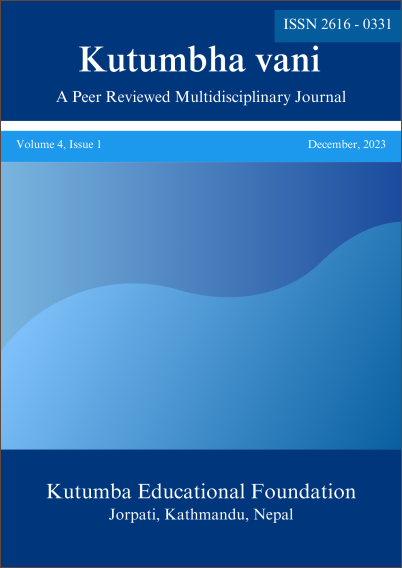Depression among Elderly Tuberculosis Patients in Kathmandu Valley
DOI:
https://doi.org/10.3126/kv.v4i1.73859Keywords:
Kathmandu, Tuberculosis, Elderly, DepressionAbstract
Depression is common in tuberculosis patients, which can worsen functioning, lower quality of life, and decrease the chance of a successful tuberculosis treatment. The objective of the study was to assess depression and its associated factors among elderly TB patients in Kathmandu valley. The study uses a quantitative cross-sectional design, conducted in three districts of Kathmandu valley including 380 TB patients aged 60 years and above. A standard questionnaire was used for socio-demographic information, while Geriatric Depression Scale Short Form (GDS-15) was used to measure depression. The mean GDS score of the respondents was 7.92. It was found that 78.9 percent (n=300) had scores suggesting depression of which 21.1 percent had low level of depression, 61.6 percent had moderate level of depression and 17.4 percent had high level of depression. Religion (p=0.004), marital status (p=0.018) and drinking alcohol (p=0.011) was significantly associated with depression. Early detection and treatment of depression is critical among elderly TB patients. There is a need to integrate mental health screening into routine TB care to ensure that depression is identified and treated promptly.




